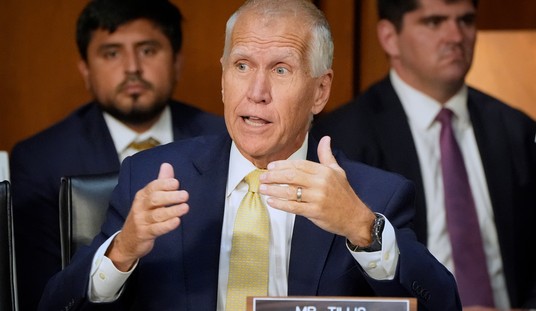WASHINGTON – A top healthcare analyst said the Affordable Care Act’s health insurance marketplaces will not be sustainable unless most of those eligible for subsidies sign up.
Robert Laszewski, president of Health Policy and Strategy Associates, said that as few as 30 percent of people eligible for subsidies in the ACA have signed up for coverage.
In order for the ACA to be sustainable, it has to get at least 70 percent of those people eligible for subsidies to sign up, he said.
People earning less than 400 percent of the federal poverty level – about $46,000 for a single person or $94,000 for a family of four – may be eligible for a government subsidy to help them buy coverage.
Laszewski said that Obamacare’s main problem is that the people who should be the most inclined to sign up do not like the plans.
“This is a fundamentally important question. Because why did we turn the insurance market upside down…if we’re not successful in getting the people we wanted to get in the first place?” he said Friday at a forum sponsored by the American Enterprise Institute.
He said the ACA has failed to attract uninsured individuals because they still must pay about 10 percent of their after-tax income for plans with high deductibles and narrow provider networks.
The average deductible for the ACA’s silver-tier health plans, the most popular in the exchanges, is about $2,500.
Under the ACA, health insurance companies are offering smaller provider networks to mitigate cost increases. Typically, a narrow network includes providers who agree to lower prices with the expectation that patient volume will grow.
Laszewski, who described himself as an Obamacare critic who sees the need for healthcare reform, said the ACA needs fixing, particularly in its health plan offerings.
He said the Obama administration could get the ACA on track by broadening the offerings and providing “benefits up front so that healthy people can see value.”
Laszewski expressed concern that the enrollment figures might convince “ardent supporters of Obamacare that [the law] doesn’t need fixing.”
President Obama announced on April 17 that 8 million people have signed up for health insurance under the ACA, surpassing Congressional Budget Office projections. The president blasted critics of Obamacare by saying that they were “wrong” all along about the law.
On the other hand, Republicans have said that the White House continues to conceal the full impact of Obamacare, pointing to how thousands of people had their insurance plans canceled. They also have noted that the federal health care law remains unpopular among Americans, with 54 percent of them disapproving of it.
“While the supporters of Obamacare citing 8 million are getting pretty cocky these days, I think Republicans are overly confident as well,” Laszewski said. “I actually think that the Democrats can take this issue back by November if the Republicans aren’t careful.”
He said there are two very different interpretations of the so-called 8 million enrollments.
The first is that the enrollment has dramatically exceeded expectations and proves that the program is working, but “we’ve hardly made a dent in the number of people who are uninsured.” The second interpretation is that “the program is still a regulatory nightmare and needs to be repealed and replaced.”
A February survey by consulting firm McKinsey & Co. pointed out that most of the people enrolling in the program were previously insured. Newer survey data by the RAND Corporation came up with some of the same conclusions, noting that only 27 percent of people who have selected a plan on the federal health insurance exchange did not previously have coverage.
He said that about 17 percent of people signed up for the marketplace plans have not yet paid their premiums. This would likely bring the reported enrollment figure down.
“If you see that 30 percent of those eligible for subsidies signed up, and 70 percent didn’t, that tells me you’ve got a problem with the customers that you’ve got to worry about,” Laszewski said.
He noted the low number of people buying insurance is particularly troublesome given that “Obamacare is a monopoly” and “there’s no other place to buy health insurance.”
“There’s only one place to get this product, and in addition, the government will pay a big portion of your cost,” Laszewski said. “So you have a product here that is a monopoly where somebody is paying a good share, if not all of the costs for you to buy, …and still 70 percent passed on buying it. There’s definitely a customer issue here.”
Laszewski said he does not expect the ACA to be repealed, but rather “to evolve.” He predicted the law will look entirely different 10 years from now, or even five years from today. But he does not expect any fixes until at least 2017, when the new president and Congress ultimately grow tired of the “Obamacare wars” and decide to move on with their own agendas.
“I think this thing just limps along for a variety of reasons. It limps along financially… and it limps along politically,” Laszewski said.
“It doesn’t really matter what happens in the elections in 2014, whether the Republicans capture the Senate or not. We’re not gonna have the environment or the votes for any kind of substantial change to the ACA. We’re probably not gonna have the political atmosphere for any substantial kind of change,” he added.









Join the conversation as a VIP Member